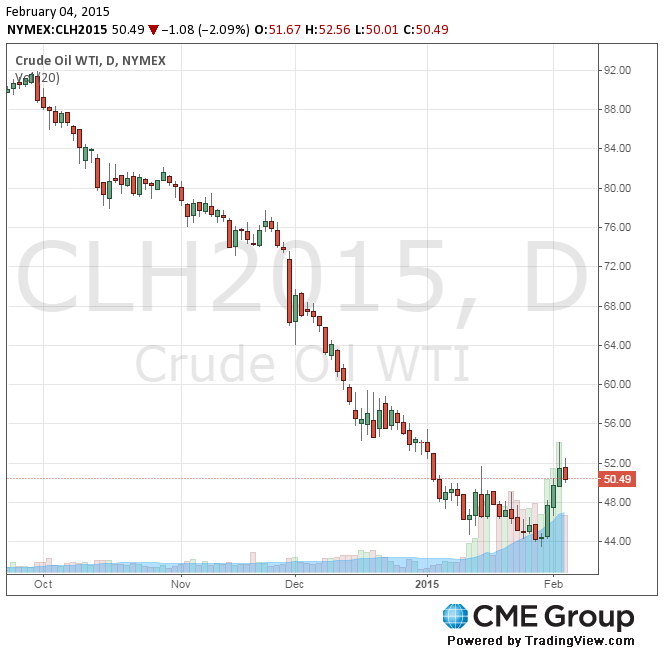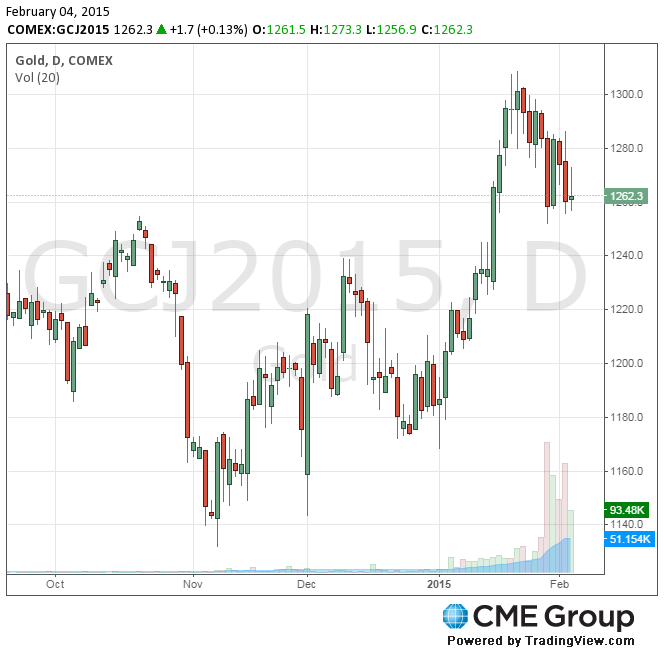Noticias del mercado
-
17:40
Оil extended losses
Crude oil extended losses after an Energy Information Administration report showed U.S. inventories grew more than expected last week.
The market halted the biggest four-day rally since January 2009 as stockpiles advanced 6.33 million barrels to 413.1 million, the highest level in at least three decades. Analysts surveyed by Bloomberg had expected a gain of 3.25 million. Talks were scheduled to resume on Wednesday to resolve the biggest U.S. oil-worker refinery strike since 1980.
"The rebound is coming to an end," said Gene McGillian, a senior analyst at Tradition Energy in Stamford, Connecticut. "We are still going to grind lower until we get a real indication that production levels are starting to drop."
Oil had rebounded from the lowest level in almost six years as companies including BP Plc, Royal Dutch Shell Plc and Chevron Corp. reduce investments in response to the market's collapse. Brent closed more than 20% above its Jan. 13 settlement on Tuesday in London, meeting a common definition of a bull market.
West Texas Intermediate for March delivery decreased US$2.87, or 5.4%, to US$50.18 a barrel at 10:36 a.m. on the New York Mercantile Exchange. It gained 19% in the four days to Tuesday, settling at US$53.05, the highest close this year. The volume of all futures traded was about 47% above the 100- day average for the time of day.
Brent for March settlement slid US$2.20, or 3.8%, to US$55.71 a barrel on the ICE Futures Europe exchange in London. The European benchmark crude traded at a premium of US$5.40 to WTI on the ICE.
U.S. crude inventories climbed for a fourth week to the highest level in weekly data compiled by the EIA since August 1982, the Energy Department's statistical arm said.
Stockpiles at Cushing, Oklahoma, the delivery point for WTI futures, increased 2.52 million barrels to 41.4 million. Gasoline stockpiles rose 2.34 million to 240.7 million, and distillates climbed 1.79 million to 134.5 million.

-
17:20
Gold recovers
Gold prices are rising after the recession before, but growth is constrained by interest in risky assets on the background of negotiations with creditors Greece.
A day earlier, gold has fallen in price by 1.3% on hopes that the new Greek government will be able to reach a compromise with its international lenders on the terms of economic assistance.
The Greek government has signaled plans to revise the debt amounting to € 140 billion to its creditors, waive the requirement to take them off.
This decision concerns the market has weakened over the possible conflict that could force Greece to leave the euro zone.
Greek Finance Minister Janis Varufakis suggested "list of debt swaps" to ease the debt burden of the country, according to which creditors are invited to exchange debt for new bonds tied to economic growth. This may help reduce the risk of
"The willingness to take risks, apparently growing, causing a flow of funds out of safe assets - yen and gold - in more risky - stocks and the euro. If there will be no adverse events, all the less likely it is that in the near future gold returning to more $ 1,300, "- wrote in a report Phillip Futures investment analyst Howie Lee.
Stocks of the world's largest gold ETF-secured fund SPDR Gold Trust on Tuesday declined to 24.59 million ounces at a maximum level since October 24.65 million ounces a day earlier.
April futures price of gold on the COMEX today rose to 1273.30 dollars per ounce.

-
12:20
Oil: prices slump after recent rally
Oil has ended its rally today. After a 7th consecutive month of falling prices oil prices rose markedly in the last 4 days gaining nearly 19%. Brent Crude lost -2.78%, currently trading at USD56.30 a barrel, still far above the important USD50 level. On January 13th Crude hit a low at USD45.19. West Texas Intermediate declined by -3.51% currently quoted at USD51.19. API Crude Oil Inventories expanded by 6.1 million barrels data showed yesterday fuelling concerns over high stockpiles. Chinas service sector, China is the second largest consumer of oil after the U.S., grew at the slowest pace in 6 months further weighing on prices.
Worldwide supply still exceeds demand in a period of low global economic growth and the OPEC refusing to cut output rates to stabilize prices. Smaller OPEC members want to cut production but the organisation, responsible for 40% of worldwide production focuses on its fight for market share.
-
12:00
Gold prices rebound with Greece in the focus
Gold is trading higher today on Wednesday as uncertainty over the developments in Greece are in the focus. Yesterday gold declined markedly on news that the new Greek government retreated from a plan for a write-off of its debt and proposed a new debt arrangement to reach a compromise with its international creditors on the terms of its bailout. Finance Minister Varoufakis reassured in London that Greece is not seeking a standoff with the European Union. Earlier in yesterday's session gold rose on mixed U.S. data from Moday.
Market participants also look ahead to a set of U.S. data including the ADP Unemployment Report, Services PMI and the ISM Non-Manufacturing index and non-farm payrolls on Friday to get a better judgement on when the FED is going to rise interest rates. A future interest rate hike adds pressure on gold. Higher interest rates make gold less attractive as the metal is not yield-bearing. A stronger greenback recently also weighed on the dollar-denominated precious metal as it makes it more expensive for holders of other currencies
In January gold prices increased by almost 8% as the precious metal was sought after as safe-haven asset.
The precious metal is currently quoted at USD1,267.50, +0,55% a troy ounce. On Thursday the 22nd of January gold reached a five-month high at USD1,307.40.
-
00:37
Commodities. Daily history for Feb 3’2015:
(raw materials / closing price /% change)
Light Crude 53.05 -1.05
Gold 1,260.30 -2.90
-
